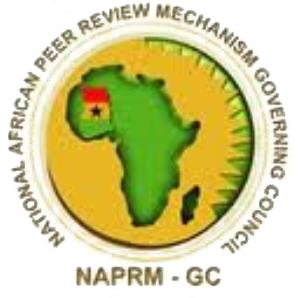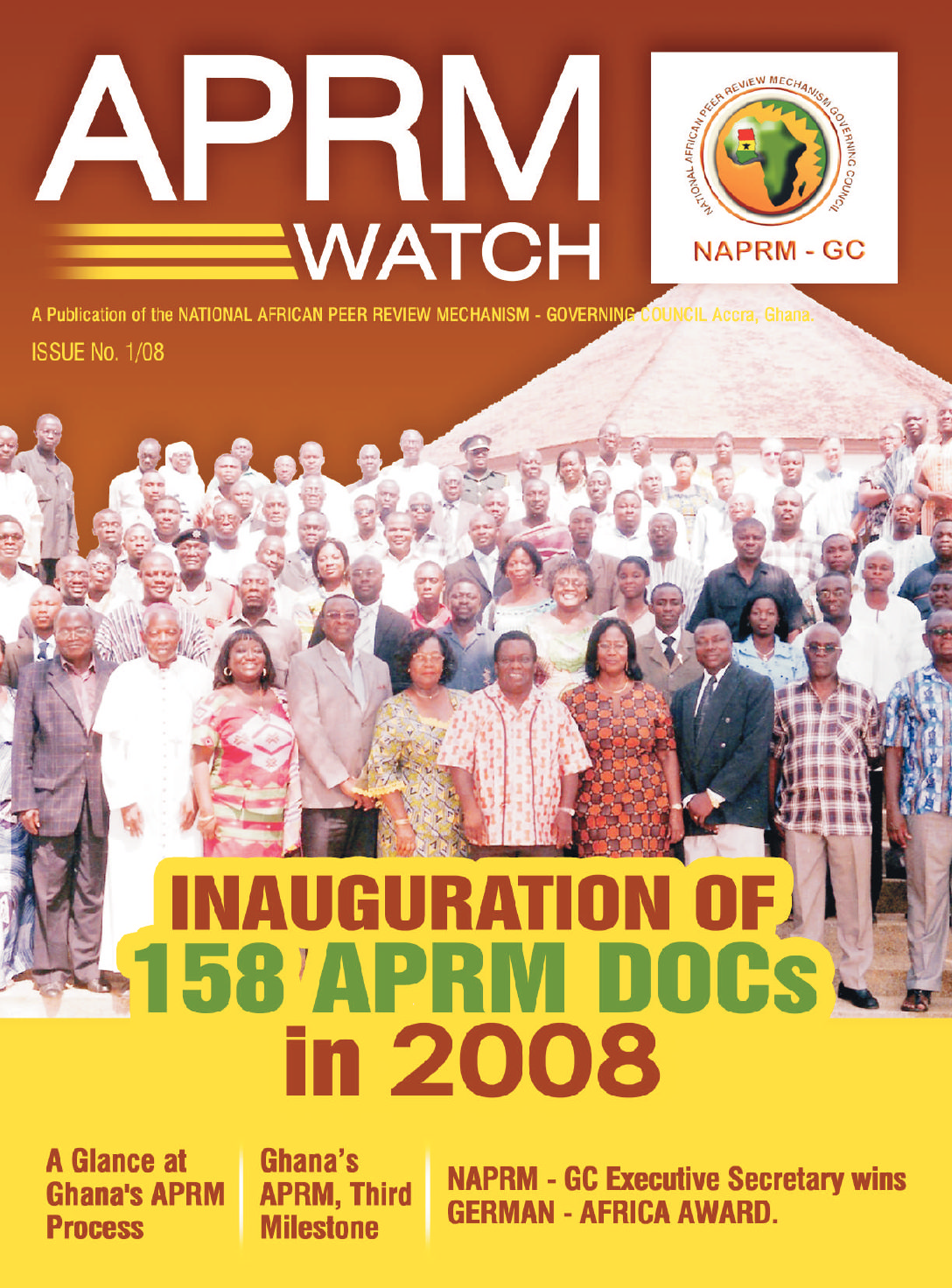In Ghana’s APRM Country Report, recommendations were made for further enhancement of the Separation of Powers, to ensure the effectiveness of Parliament.
In addition to the African Peer Review Mechanism, other governance institutions including civil society think tanks, academics and constitutional experts, social commentators, and public advocates have called for a review of some aspects of the 1992 constitution of Ghana.
In response to this, President John Evans Atta Mills has sworn-in an eight-member Constitutional Review Commission to review the country’s 1992 Constitution.
The Commission will among other things solicit from the Ghanaian public the weaknesses and strengths of the current constitution. It will also articulate the concerns of the public on amendments that may be required for a comprehensive review and provide a draft bill for possible amendments.
The Commission is chaired by Prof. Emeritus Albert K. Fiadjoe, Professor of Public Law. In recognition of the critical role of the APRM to the constitution review, the members include Osabarima Kwesi Atta II, Paramount Chief of Cape Coast Traditional Area, Mr. Akenten Appiah Menka, a lawyer and industrialist, Mrs. Sabina Ofori Boateng, Consultant to the Legislative Unit of the Office of Parliament. The rest are Rev. Prof. S.K. Adjepong, President of Methodist University College Ghana and Chairman, National African Peer Review Mechanism Governing Council, Dr. Nicholas Amponsah, Snr. Lecturer, Department of Political Science, University of Ghana, Mr. Gabriel Pwamang, legal practitioner and Mrs. Jean Mensa, Executive Director of the Institute of Economic Affairs (IEA). It is expected to work within twelve months of inauguration. Inauguration the Commission, President Mills said that the multi-party and representative nature of the membership demonstrates the national nature of the review which he noted will enable the nation to operate its democratic values in an efficient and progressive manner. He pledged the Commission to be sensitive to the wishes of the people of Ghana to ensure a total acceptance and approval at the end of the Review.
On behalf of the members, the Chairman of the Commission thanked the President for the opportunity to serve the nation and assured the nation of the commitment of members to their assignment as a critical success factor to the destiny and future of the nation.
Before the inauguration of the Constitutional Review Commission, the Attorney General and Minister of Justice Mrs. Betty Mould-Iddrisu presented a memorandum to the cabinet on aspect of the Constitution she felt may require review. She noted that Ghana’s 1992 Constitution embodies many features that seek to foster accountable, open transparent and participatory democratic governance. She added that inspite of Ghana’s shining example in democratization and good governance in Africa, there are still some flaws in the Constitutional design and practice. These have worked to undermine the systems of checks and balances, promoted Executive dominance that impedes the effectiveness of oversight institution such as Parliament and independent constitutional bodies. These the Attorney General observed have led to the identification od almost forty changes that needed to be reviewed.
They include:
- Provisions of Chapter Eight of the Constitution to determine whether excessive powers of the Executive President should be curtailed
- Article 78(2) which does not place a ceiling on the number of ministers a president should appoint
- The absence of a ceiling on the number of judges that may be appointed to the Supreme Court
- A clarification of the public character or otherwise of the chieftaincy institution and whether or not a chief may hold public office
- The timing of holding presidential and parliamentary elections
The election or otherwise of District Chief Executives. The Attorney General and Minister of Justice Mrs. Betty Mould-Iddrisu acknowledge the pioneering role of the APRM in this process.
With a call of the APRM for a Constitutional review underway, the APRM has once again demonstrated that it serves the national interest by bringing to the fore the collective concerns and voices of the people for good governance.

 newsletter-compressed
newsletter-compressed